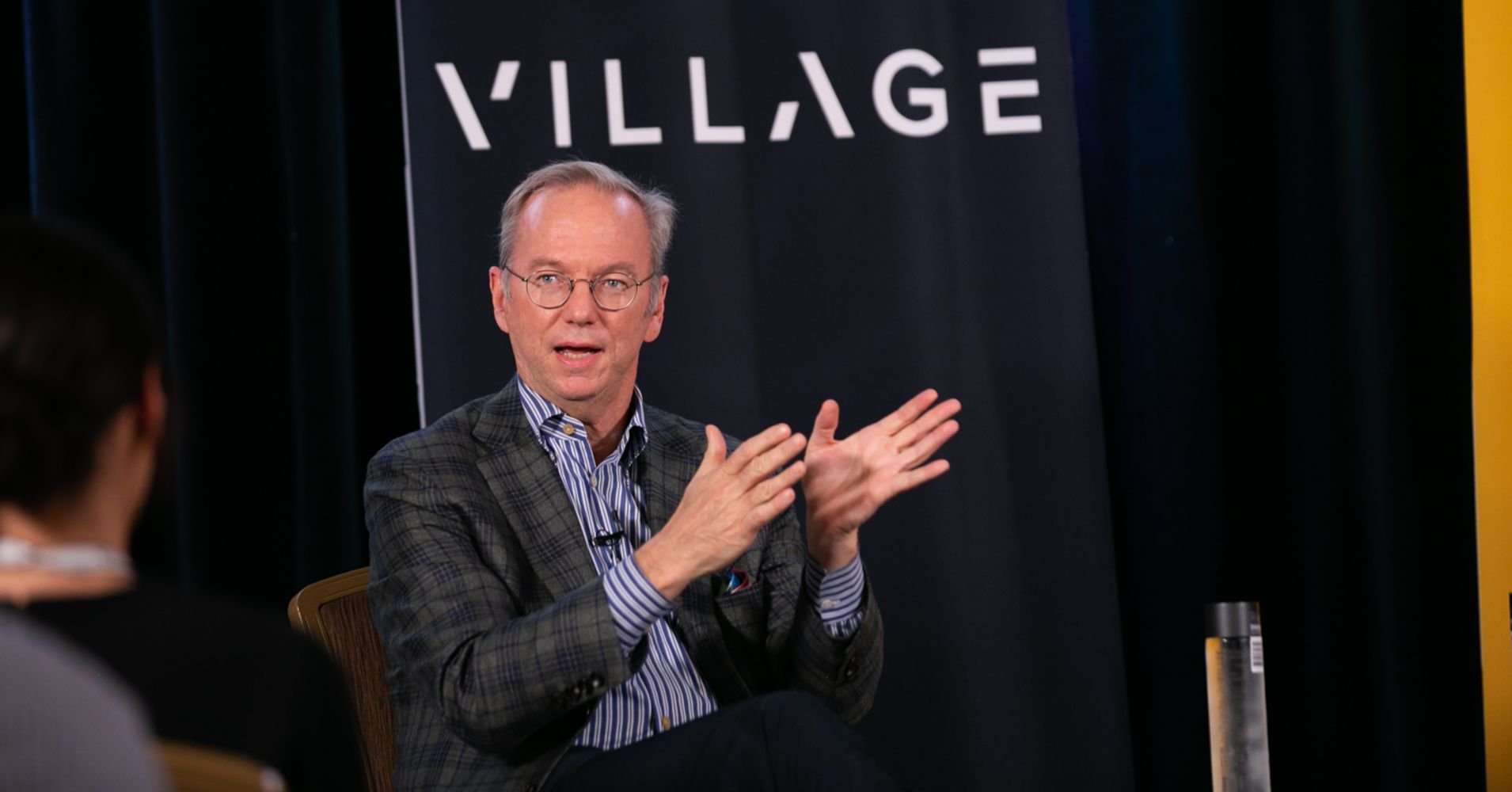Eric Schmidt, who has been the CEO of Google and executive chairman of its parent company, Alphabet, predicts that within the next decade there will be two distinct internets: one led by the U.S. and the other by China.
Schmidt shared his thoughts at a private event in San Francisco on Wednesday night convened by investment firm Village Global VC. The firm enlists tech luminaries — including Schmidt, Jeff Bezos, Bill Gates and Diane Green — as limited partners, then invests their money into early-stage tech ventures.
At the event, economist Tyler Cowen asked about the possibility of the internet fragmenting into different sub-internets with different regulations and limited access between them in coming years. "What's the chance, say, 10 to 15 years, we have just three to four separate internets?"
"I think the most likely scenario now is not a splintering, but rather a bifurcation into a Chinese-led internet and a non-Chinese internet led by America. If you look at China, and I was just there, the scale of the companies that are being built, the services being built, the wealth that is being created is phenomenal. Chinese Internet is a greater percentage of the GDP of China, which is a big number, than the same percentage of the US, which is also a big number. If you think of China as like 'Oh yeah, they're good with the Internet,' you're missing the point. Globalization means that they get to play too. I think you're going to see fantastic leadership in products and services from China. There's a real danger that along with those products and services comes a different leadership regime from government, with censorship, controls, etc. Look at the way BRI works – their Belt and Road Initiative, which involves 60-ish countries – it's perfectly possible those countries will begin to take on the infrastructure that China has with some loss of freedom."
The Belt and Road is a massive initiative by Beijing to increase China's political and economic influence by connecting and facilitating all kinds of trade, including digital trade, between China and countries in Europe, Africa, the Middle East and Asia.
Schmidt's predictions come at a time when his successor at Google, CEO Sundar Pichai, has stirred up controversy around the company's strategy in China.
Reportedly, Google has been developing "Project Dragonfly," a censored version of its search engine that could appease authorities in China. The project allegedly included a means to suppress some search results, booting them off the first page, and a means to fully block results for sensitive queries, for example, around "peaceful protests."

lacraquotte on September 22nd, 2018 at 01:32 UTC »
Isn't that already the case? I live in China and no-one uses the same apps and websites as in the west here, they're all blocked. It's effectively a whole other internet.
confuzzledfather on September 21st, 2018 at 23:36 UTC »
Wow imagine if this great international coming together that was the internet was just a brief stage before the inevitable break up into national state internets. That makes me sad.
IdonHope on September 21st, 2018 at 23:12 UTC »
"Predicts"